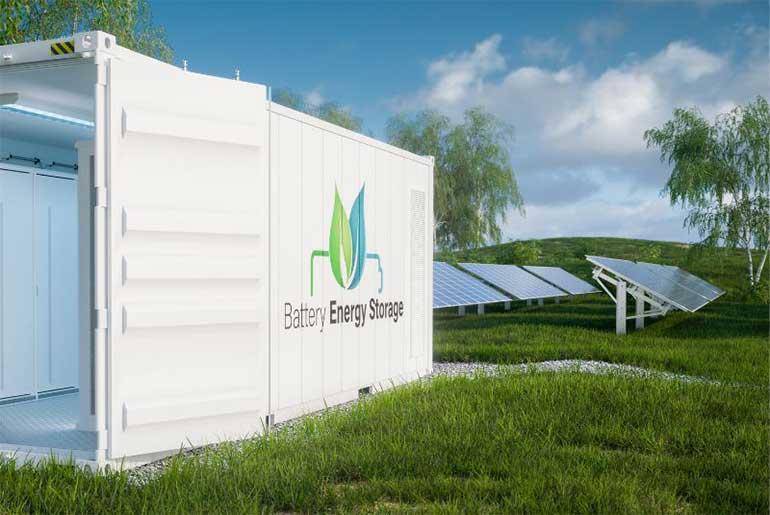Deutsche Gesellschaft für Internationale Zusammenarbeit (GIZ) GmbH, The Energy and Resources Institute (TERI), and Gujarat Urja Vikas Nigam Limited (GUVNL) have announced the signing of a tripartite Memorandum of Understanding (MoU) for the Energy Storage for Renewable Energy Integration in India (StoREin) project—marking a major step forward in advancing India’s renewable energy transformation.
This collaboration will pilot and certify the technical and commercial viability of Battery Energy Storage Systems (BESS) in the power distribution grid at the state level of Gujarat as well as shape policy and regulatory frameworks to enable the rapid national expansion of such solutions.
The renewable energy capacity generated in India is increasing exponentially, but the uncertain reliability of solar and wind energy has been a problem in grid stability. Gujarat, which leads the nation in the installation of rooftop solar and renewable energy capacity addition, is leading in large-scale energy storage integration by handling distribution-level fluctuations.
Substation and feeder point energy storage facilities are increasingly becoming a prerequisite to a reliable/resilient power grid. Under this MoU, the scope of activities will be to identify ideal locations and uses of BESS in the network of GUVNL and subsequently, developsustainable business models through pre-feasibility studies. TERI will make a Detailed Project Report (DPR), and GUVNL will make tenders on pilot and demonstration projects.
The StoREin project is an on-ground implementation of GIZ on behalf of the German Federal Ministry of Economic Affairs and Energy (BMWK) under the International Climate Initiative (IKI), in liaison with the Ministry of New and Renewable Energy (MNRE) in India. It has research partners such as the Fraunhofer Institute for Energy Economics and Energy System Technology (Fraunhofer IEE), IIT Bombay and WRI India.
Bernhard Voelcker, Leader of the StoREin Project at GIZ India, stated that “the main way to intensify the usage of energy storage is to identify diverse use applications and demonstrate their economic feasibility.”
Fellow & Director at TERI, Alekhya Datta pointed out that “battery storage pilots are one of the most important initiatives to achieve India clean energy objectives.”
To GUVNL, it is an essential move toward green energy in Gujarat. According to Sourav Nandy, GM, Finance & Accounts at GUVNL, the cooperation will also increase renewable integration considerably by using a storage solution, a step that will boost the power sector’s resilience.
In line with India ambitious policy of having 500 GW of non-fossil fuel energy capacity by 2030, it is understood that the Gujarat demonstration project would be an achievable model in other states. The project might well enjoy a successful implementation; as such, it may result in a more significant roll-out of decentralized storage, a more reliable grid, and an accelerated adoption of renewable energy on a national scale.
This MoU is a critical milestone on India’s clean energy track in collectively tackling the intermittency issues of renewable power by pioneering piloting BESS on the distribution side. It will also facilitate policy and regulatory frameworks at the national level, which are still at a fledgling stage. The example of Gujarat as a leader in this field makes it the testing ground of the announced energy storage solutions that can be scaled and flexible to other states with shallowing renewable portfolio variations. It is also a nice example of how international partnerships can leverage expertise (German technical strength + Indian research + utility networks) to make a difference and take climate action.
In case of success, the cooperation between GIZ, TERI and GUVNL may become one of the major turning points in the process of transforming the Indian electricity grid into a renewable-based grid, where energy storage will enable the future of an energy-efficient mode of operation.



